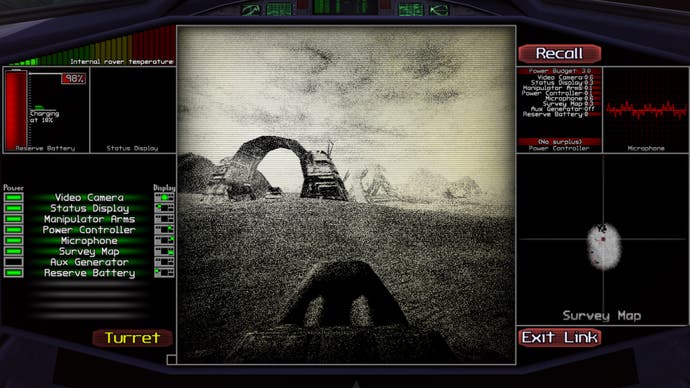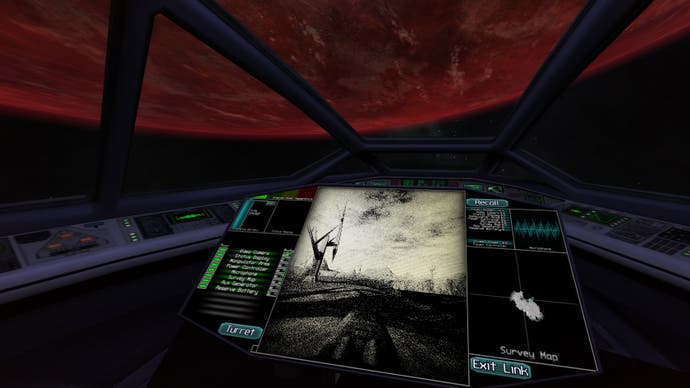Can you discover games for yourself in the algorithmic age?
Looking for the ludic equivalent to The Julie Dolphin.
Back when I was 17, I took a chance on a CD single I found in a record shop where I'd wait for my bus home from sixth form. The song was called Birthday and it was by a band called The Julie Dolphin. No, you won't have heard of them.
I was an awful indie kid. The mid-90s was the golden age for kids like me. We were emboldened by the rise of grunge and Britpop was about to explode. I say 'we'. Truth is, I lived in the countryside outside Ipswich and few of my friends were into music, which meant that my music lived entirely between myself, what the NME told me to think, and the few CDs I could afford. But I was fiercely protective of a taste I'd cultivated for nearly a whole year. So, knowing The Julie Dolphin were extremely obscure and finding Birthday (an enthusiastic blend of My Bloody Valentine (who I'd yet to listen to) and Pixies (a friend wore their T-shirt)) pleasantly jangly, I ordered a copy of Lit, their first and as it turned out only album. I was so proud. I'd discovered a band. They got in the NME twice, enough to be affirmation of my discernment and not enough for them to be remotely popular. The Julie Dolphin were mine.
I got the same feeling the other day when, mistyping a search, I stumbled across a game on Steam called Scavenger SV-4. Steam is pitilessly effective at expressing how popular a game is, and this sci-fi roguelike hadn't attracted many reviews since its release at the end of January. None of my friends list had played it. But its trailer was promising and its pitch ended with, "It is not quite like any game you have played before". Music to my indie ears. Buy.
My indie sense was dead on. Scavenger SV-4 is a gem. It's a game about exploring an alien planet. Played in first-person, you're on a small ship in orbit around a planet and your job is to send a rover down to the surface, remote-piloting it to explore bizarre structures and collect alien artefacts. One of its many great features is that you interact directly with in-world screens like you do in Doom 3, so when the rover is on the planet and you leave its terminal to gaze out of the window at the vast planet below, you can also see its static-riddled view of the ground on your nearby terminal. Magic.
Once you've filled the rover's storage up, you bring it back to the ship and research the artefacts you found. Some are components you can install in your rover to add new functions, like weapons to shoot the aliens it'll encounter down there and better power generators and cameras, and some are just worth cash, which will give you a higher score when you hyperspace home at the end of the run, once the ship's storage is full. That's if you haven't died of radiation poisoning first.
But stuff also happens. Weird stuff. Surprising stuff which I won't spoil. And no run plays out quite the same. Scavenger SV-4 is one of those rare games that hooks into various established ideas, such as remote piloting, System Shock-like emergent horror storytelling, a touch of Alien and Solaris. And it also mixes them around with its own thing: everything is simulated, from atmospheric systems to the storage of the artefacts, and you can watch your rover jet down into the planet's atmosphere, watching your own ship recede from view through its viewscreen.
It's a small game, limited and uneven in many ways, but I could rhapsodise about it for hours. I want to champion it, and yet I also want to hold it close to my chest, to keep it mine. 24 years later, I'm feeling that same precious, maybe obsessive, indie kid ownership over a niche indie thing that I've decided I've discovered.

That's when I realised that I haven't felt like this about a game for a long time. You don't tend to feel you discover anything for yourself in today's algorithmically driven commercial landscape. To visit Steam's store front page is to be bombarded by an infinitely scrolling list of recommendations based on previous purchases, what friends are playing, and what's new and on sale. Pure happenstance is only possible when you purposefully go off piste, and why would you when, with a library as big and explosively expanding as Steam's, that list goes on and on, showing attractive game after game?
If your awareness of games isn't from platforms like Steam, it's probably from seeing them on Reddit or other social media, celebrated by your peers on a forum, on a website like this, or from advertising. You don't discover games for yourself; instead you feel fed, your relationship with games bound up in the social contexts you found them through, or in the critical opinions of those you respect. Everything always seems already known about.
That contrasts deeply with my early experience of video games. I didn't buy magazines much, mostly because the systems I had always trailed the cutting edge. When I got my first PC, a second-hand 486, Pentiums had come out, and I was building my enduring love for UFO: Enemy Unknown in a bubble. None of my friends had it. I had no idea of how popular it was, who made it, or how epoch-defining it was. That game was simply mine.
I'm not sure you can feel that sense of ownership for many games today. They exist in a lattice of all their other players, across their Steam Community Hubs and Twitter accounts. There's a guide for everything. There are guides for Scavenger SV-4. But I don't think it's a bad thing. The truth of my experience as an indie kid was loneliness. I held those few games I had tight because there was nothing else to them. I'd loved to have been able to access more, to see screenshots and read walkthroughs and watch videos detailing their Easter eggs. And Steam is great at finding games I like. It may even have served me Scavenger SV-4 at some point.
Remembering The Julie Dolphin, I googled them, not expecting to see much. But it turns out that Lit has an Amazon listing and each song is on YouTube. There are even setlist for their gigs, and I learned that its members are still performing as The Bads, and that their latest album, released last year, is on Apple Music. Perhaps a song from it appeared in my algorithmically generated weekly New Music playlist? I can't have paid it special attention.


